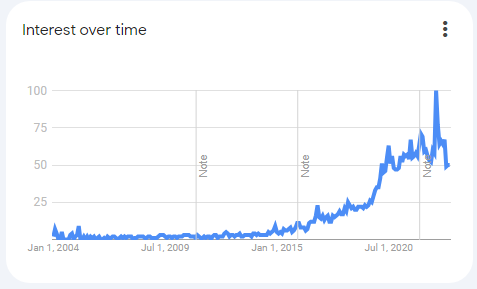Blog
Rejecting your reality and substituting my own – When is gaslighting harassment?
August 31, 2023
If you’ve never accused anyone of gaslighting before, I highly recommend it. There’s nothing they can say in response that doesn’t make them sound like a gaslighter. They can either go “yeah I did gaslight you actually.” Or they could go, “no I didn’t that’s all in your h- oh very good” – James Acaster
Gaslighting might seem like the new buzzword for a generation that has had no shortage of passing fads, but its surge in popularity indicates a disturbing trend.
The term as commonly used means making someone question their perspective, experience or reality. But a stricter definition is rooted in the 1938 stage play of that name and requires deliberate psychological manipulation to induce mental illness through self doubt. Yes the term is that old, and no I’m not gaslighting you.
But if it seems like you have only just started hearing it you’re not alone. The word has exploded in popularity in recent years. In 2018 Oxford Dictionary shortlisted the term for the most popular word of that year. And like an Olympian that fell short of expectations, “gaslighting” returned to the podium in 2022 becoming Merriam-Webster’s word of the year.

Google searches for the term began increasing sharply in late 2016. Courtesy of Google trends
Why has the term become so pervasive, and what does this mean for workplaces?
What’s sparked the increase?
[W]hen they tell you you’re imagining the discrimination? They’re gaslighting you. – Emily & Amelia Nagoski
The rise of gaslighting is not an isolated phenomenon. With the increase in societal polarization and fragmentation, people are less able to relate to each other’s lives.
Media feeds have been tuned to further entrench our preexisting beliefs while dismissing opposing views. When our peers have different lived experiences and are exposed to drastically different information than us they can be blind to our views and perspectives. This can lead to a feeling that we are no longer sharing the same reality with everyone, even if everyone is behaving rationally. Gaslighting is not always intentional after all.
This polarization has contributed to the denial of systemic discrimination, which is also fueling the gaslight. As Emily and Amelia Nagoski explain in their book Burnout, when victims of bias are told that racism and sexism do not exist, they self-doubt. This is a form of gaslighting, causing victims to question their own reality of being subjected to discrimination and to instead wonder whether they are the problem.
How does the law consider gaslighting?
Gaslighting does not have a precise legal definition. Although it is often thought of as a colloquialism it has begun appearing in legal decisions as a condemnable conduct.
Family courts seem to be dealing with gaslighting most extensively. This is perhaps expected given the personal nature of these disputes (and fitting given its fictional domestic origins). Some judges have embraced the term making findings that a party has been gaslighting.
The term has been appearing in some other legal decisions as well, including those in the employment context. But outside of the family law context, decisions makers seem to only quote others using the word and are hesitant to endorse its meaning.
Whether decision makers are comfortable using the term or not, gaslighting does have legal implications. Harassment under the Occupational Health and Safety Act and the Ontario Human Rights Code can include gaslighting. Ordinary disagreements or differences in perspective are not harassment. But gaslighting that is serious, prolonged, or accompanied by other harassing behaviour could be harassment under the law.
What does this mean for employers?
The growing popularity of the term is symptomatic of a shift in cultural awareness. There has been a rise of online communities with anti-employer sentiments such as r/antiwork. These forums demonstrate that employees are becoming more aware of psychologically unsafe and unhealthy work practices and are demanding better.
It is becoming more common for employees to complain about gaslighting. It often arises when an employee comes forward with concerns about interpersonal conflicts and feels they have been dismissed by the employer. This typically happens when the employee feels that the employer’s response is unsympathetic or defensive, which can exacerbate the conflict. The perception of gaslighting comes in where the employer makes the employee feel, even without explicitly saying so, that the issues are all in their head, aren’t really that serious, or are the employee’s own fault.
Employers should treat claims of gaslighting/harassment seriously. They are obligated to take certain actions when employees report harassment, and this applies even if the employee doesn’t use the word harassment.
An employee complaining about gaslighting already feels that they are being made to doubt their perception or experiences. The response should consider those feelings in a deliberate manner. Employers can’t immediately agree with the employee’s concern, because there is always another side to the story and the alleged harasser’s perspective must also be taken seriously without prejudgment. But empathy and active listening can help employers demonstrate that they take the concern seriously, understand the employee’s experience and perspective, and are committed to addressing the conflict. By approaching concerns in a respectful, curious and non-dismissive way, employers can support employees through the challenges caused by gaslighting.


